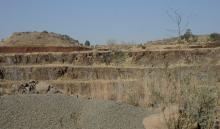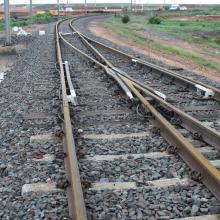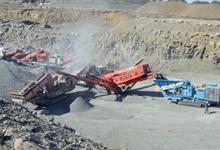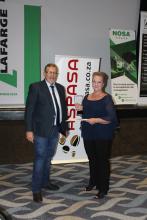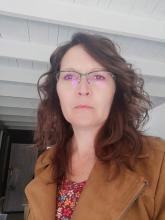Discussions between local councillors, traditional leaders, communities, industry and national government departments are urgently needed to resolve quarry industry challenges, according to those attending a recent meeting of a key regional branch of South African surface mining industry association,
The meeting saw Aspasa members in Fern Hill in the Midlands area of Kwa-Zulu Natal agree that the South African government’s Department of Co-Operative Government and Traditional Affairs (COGTA) would be the link between government and industry.
Aspasa members stated that the role of COGTA was to help bring stakeholders together and assist with Integrated Development Plans (IDP’s) and Social and Labour Plans (SLP’s) in Kwa-Zulu Natal (KZN).
According to Aspasa director Nico Pienaar, job creation must be the focus and the SLP’s for KZN should involve the mining industry in the form of discussions and future plans, especially on the needs of surrounding communities and how it impacts on skills development.
“Communities should understand and benefit from the SLP focus areas. In this regard, COGTA must also handle and resolve conflicts. Many of the IDP’s were developed in 2011 and few are working well,” he says.
Local Aspasa members who attended the KZN meeting, which included Noshcon,
Most importantly, the IDP’s were a problem as the focus was on macro projects which the local quarry industry cannot service. Rural communities want the benefits of projects for their own areas. With most of the ASPASA members situated in rural or smaller towns which limits profitability it is important that municipalities, communities and the DMR work together. At stake was the trust of communities in industry and government departments.
“It will be essential in future to assure that other businesses and industries (apart from quarries) work together in an area and do something big,” Pienaar adds.
Complicating matters were requirements and “demands” from local councillors, municipalities and the DMR on small quarries, which cannot comply specifically regarding time and financial resources. The solution is to establish the real need of role players by COGTA. The ideal is collaboration between big and small mines so as to achieve the biggest impact possible with communities, he suggests.
Paying royalties to traditional leaders by industry was another problem discussed as was in-fighting among chiefs and communities which was deleterious to business. To prevent any misuse of funds the DMR should develop a guideline which is practical and clear, preventing double dipping. Illegal mining needs to be clamped down on as well.
Going forward, the Aspasa-led Co-Operative Forum for Quarries was established to set out priorities and formulate documents and guidelines to be discussed at the next meeting.


